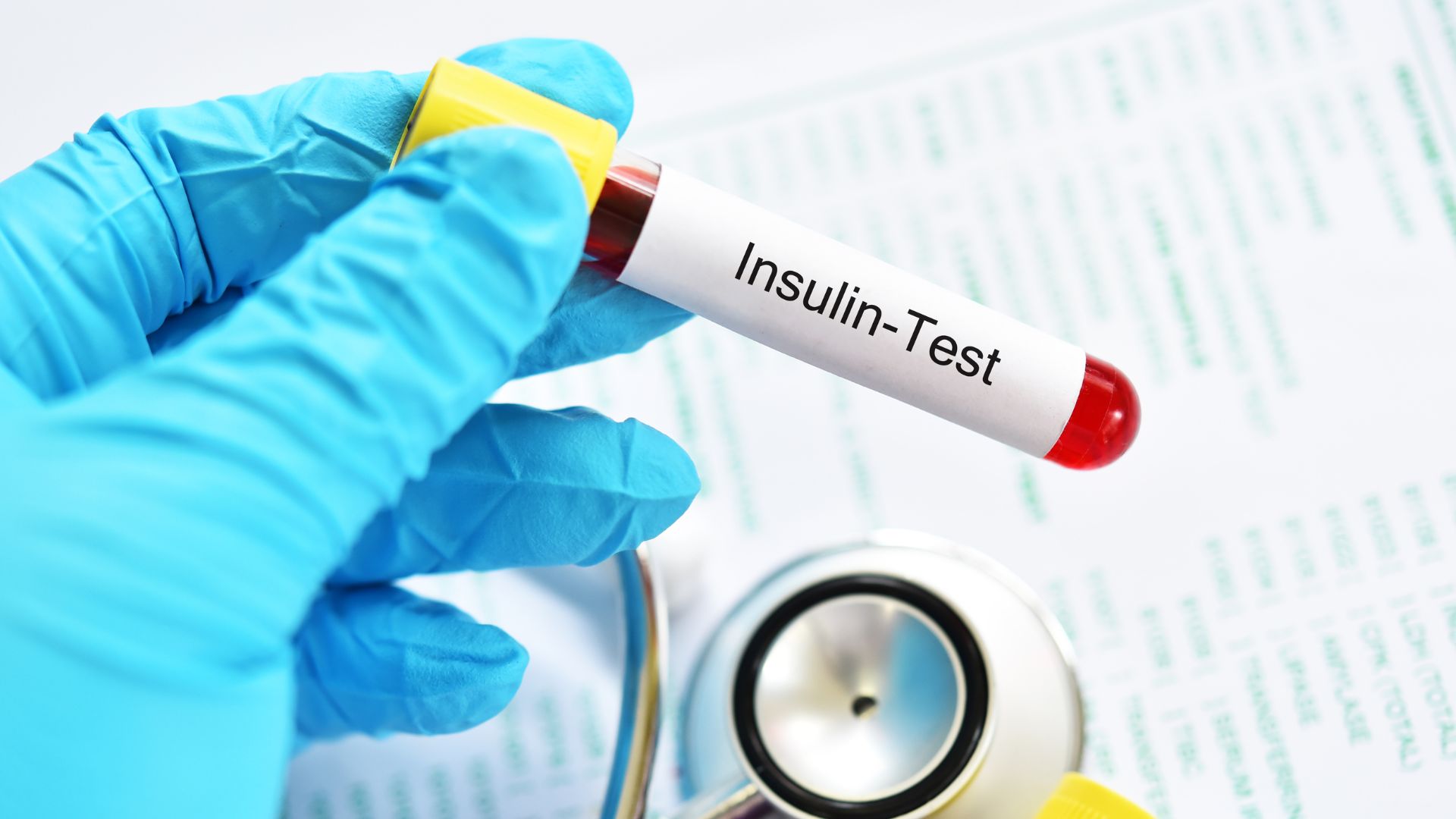Insulin resistance is a growing health concern in India, contributing to the rising prevalence of type 2 diabetes, obesity, and metabolic syndrome. With lifestyle changes, dietary shifts, and increasing stress levels, understanding insulin resistance is crucial for maintaining long-term health. This article explores what insulin resistance is, its causes, symptoms, and management strategies, tailored specifically for the Indian audience. At Infinity Care Hospital, we are committed to empowering you with knowledge to take charge of your health.
What is Insulin Resistance?
Insulin is a hormone produced by the pancreas that helps regulate blood sugar levels by allowing glucose to enter cells for energy. Insulin resistance occurs when the body’s cells become less responsive to insulin, forcing the pancreas to produce more insulin to achieve the same effect. Over time, this can lead to elevated blood sugar levels, increasing the risk of prediabetes, type 2 diabetes, and other health complications.
In India, insulin resistance is particularly concerning due to the high prevalence of diabetes. According to the International Diabetes Federation, India is home to over 77 million adults with diabetes, making it the “diabetes capital” of the world. Understanding insulin resistance is the first step toward prevention and management.
Causes of Insulin Resistance in India
Several factors contribute to insulin resistance, many of which are prevalent in the Indian population:
1. Genetic Predisposition
Indians have a higher genetic susceptibility to insulin resistance, often referred to as the “thrifty gene hypothesis.” This genetic trait may have helped ancestors store fat efficiently during times of scarcity but now contributes to obesity and diabetes in modern lifestyles.
2. Sedentary Lifestyle
Urbanization and desk-bound jobs have reduced physical activity levels. Many Indians spend long hours sitting, whether at work or during commutes, which can impair insulin sensitivity.
3. Unhealthy Diet
The traditional Indian diet, rich in whole grains, pulses, and vegetables, is increasingly being replaced by processed foods, sugary snacks, and refined carbohydrates like white rice and maida-based foods. These dietary shifts contribute significantly to insulin resistance.
4. Obesity and Abdominal Fat
Central obesity, characterized by excess fat around the abdomen, is common in India and strongly linked to insulin resistance. This “apple-shaped” body type is a major risk factor for metabolic disorders.
5. Stress and Sleep Deprivation
Chronic stress and inadequate sleep, common in India’s fast-paced urban environments, disrupt hormonal balance, including insulin function. Elevated cortisol levels from stress can worsen insulin resistance.
6. Other Factors
Conditions like polycystic ovary syndrome (PCOS), common among Indian women, and certain medications can also increase insulin resistance.
Symptoms of Insulin Resistance
Insulin resistance often develops silently, with no obvious symptoms in the early stages. However, some signs may indicate its presence:
Fatigue: Feeling tired despite adequate rest, as cells struggle to use glucose for energy.
Weight Gain: Unexplained weight gain, especially around the abdomen.
Acanthosis Nigricans: Dark, velvety patches on the skin, often seen on the neck, armpits, or groin.
Increased Hunger and Cravings: Frequent hunger, particularly for sugary or carb-heavy foods.
High Blood Sugar Levels: Elevated fasting blood sugar or HbA1c levels detected during routine tests.
If you notice these symptoms, consult a healthcare professional at Infinity Care Hospital for a thorough evaluation.
Health Risks Associated with Insulin Resistance
Left unmanaged, insulin resistance can lead to serious health complications, including:
Type 2 Diabetes: Prolonged insulin resistance can exhaust the pancreas, leading to diabetes.
Cardiovascular Disease: Insulin resistance is linked to high blood pressure, high cholesterol, and heart disease.
Non-Alcoholic Fatty Liver Disease (NAFLD): Excess fat accumulation in the liver is common in insulin-resistant individuals.
PCOS Complications: Insulin resistance worsens PCOS symptoms, affecting fertility and menstrual health.
Obesity: A vicious cycle where insulin resistance promotes weight gain, which further worsens insulin sensitivity.
Diagnosing Insulin Resistance
Diagnosing insulin resistance typically involves blood tests to measure:
Fasting Blood Glucose: Levels above 100 mg/dL may indicate insulin resistance.
HbA1c: A value between 5.7% and 6.4% suggests prediabetes.
HOMA-IR: A specialized test to assess insulin resistance based on fasting glucose and insulin levels.
Lipid Profile: High triglycerides and low HDL cholesterol are often associated with insulin resistance.
At Infinity Care Hospital, our expert endocrinologists use advanced diagnostic tools to identify insulin resistance early and create personalized treatment plans.
Managing Insulin Resistance: Practical Tips for Indians
The good news is that insulin resistance can often be reversed or managed with lifestyle changes. Here are practical, India-specific strategies:
1. Adopt a Balanced Indian Diet
Choose Low-GI Foods: Opt for whole grains like brown rice, millets (jowar, bajra, ragi), and whole wheat over refined carbs. These have a lower glycemic index (GI), preventing blood sugar spikes.
Incorporate Fiber: Include vegetables, fruits, and pulses (dals, chickpeas) to improve insulin sensitivity.
Limit Sugars: Reduce consumption of sugary drinks, mithai, and processed snacks like biscuits and namkeen.
Healthy Fats: Use heart-healthy oils like mustard or olive oil in moderation and include nuts and seeds.
2. Stay Active
Aim for at least 150 minutes of moderate exercise per week, such as brisk walking, yoga, or cycling.
Include strength training exercises twice a week to build muscle, which improves insulin sensitivity.
Simple activities like taking stairs or walking during lunch breaks can make a difference.
3. Manage Stress
Practice mindfulness techniques like meditation or deep breathing, which are deeply rooted in Indian culture.
Engage in hobbies or spend time with family to reduce stress levels.
4. Prioritize Sleep
Aim for 7-8 hours of quality sleep nightly. Avoid late-night screen time and create a relaxing bedtime routine.
5. Regular Health Checkups
Monitor blood sugar, cholesterol, and blood pressure regularly to catch insulin resistance early.
Women with PCOS should consult a gynecologist for tailored advice.
6. Medications (If Needed)
In some cases, doctors may prescribe medications like metformin to improve insulin sensitivity. Always follow medical advice from professionals at Infinity Care Hospital.
Insulin Resistance and Indian Culture
In India, food is central to celebrations and social gatherings, often involving rich, carb-heavy dishes. While enjoying these traditions, practice portion control and balance indulgent meals with healthier choices. For example, pair a small serving of biryani with a large portion of vegetable curry or raita. Community-based activities like group yoga sessions or walking clubs can also make staying active more enjoyable.
Why Choose Infinity Care Hospital?
At Infinity Care Hospital, we understand the unique health challenges faced by Indians. Our multidisciplinary team of endocrinologists, dietitians, and fitness experts provides comprehensive care for insulin resistance and related conditions. From advanced diagnostics to personalized lifestyle plans, we are here to support your journey to better health.
Conclusion
Insulin resistance is a silent but manageable condition that affects millions of Indians. By understanding its causes, recognizing symptoms, and adopting healthy lifestyle changes, you can prevent or reverse its effects. At Infinity Care Hospital, we are dedicated to helping you achieve optimal health through expert care and education.
Take the first step today: schedule a consultation with our specialists or join one of our wellness programs. Together, we can combat insulin resistance and build a healthier future.
Call to Action: Contact Infinity Care Hospital for a diabetes screening or nutritional counseling session. Visit our website for more health tips and resources tailored for you.




